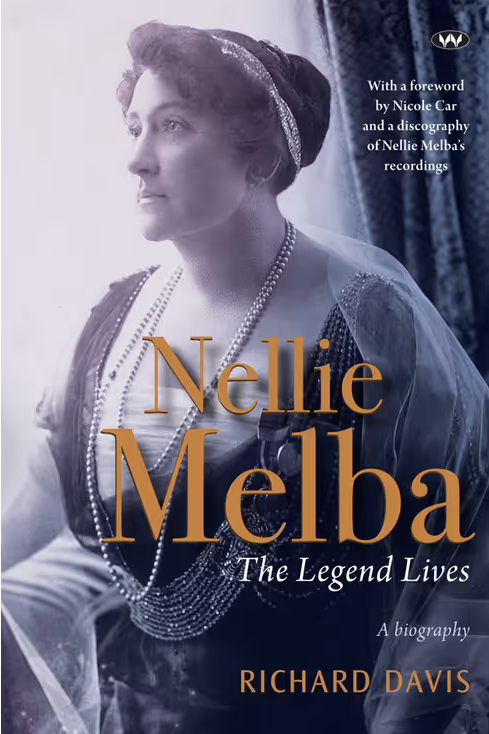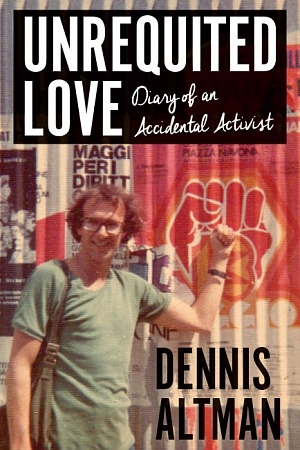Diary
April 16, Ghana. We arrive to the pandemonium that is Accra Airport. It is as if a coup has happened and everyone is fleeing the country. The general dilapidation of the place seems vaguely familiar. Suddenly, I remember a BBC documentary series on airports around the world, which featured Accra. Nick changes US$100 at an exchange rate of 7000 cedis to one greenback. He returns with a huge wad of worn notes stashed in a large brown bag helpfully labelled with large dollar signs for all those milling around, eyeing us sharply, to see. We manage to negotiate our way into town via porters and taxi with 5000 cedi notes peeling off us in the form of tips.
Before slotting into the Commonwealth Writers Prize (CWP) program, we spend several days in Accra getting to the heart of the matter, then travel down to the ancient fortresses in Cape Coast, first built by the Portuguese in the fifteenth century, taken over by the Dutch in the seventeenth, and later turned into slave dungeons.
From the grim fortresses of Cape Coast, we return to Accra and the five-star, $500-a-night, Golden Tulip Hotel (also built by the Dutch). I pick up my CWP itinerary in the hospitality room. A huge package contains thick wads of cedi notes, enough to fill a small suitcase – the equivalent of $80 per day spending money. I feel like a gangster’s moll, sitting on the bed counting all this loot.
Far from lounging around the hotel pool, reading the CWP Best Book and First Book nominees, (I have been given a set of the nominated novels), I find the program action-packed, with reading panels each night at the British Council, the Pan-African Writers’ Association, the University of Ghana, various high schools. The days are crammed with media interviews, affording me a fascinating insight into Ghana.
Day one kicks off with the CWP opening ceremony, a four-hour marathon: speech after speech from the Minister of Education, the British Council Director, the CWP coordinator, the local coordinator and the chief of the area, whose tribe we are to visit on the last day. Each speech is punctuated by musical intervals, a format we soon get used to during our interminable reading panels, some of which last for hours.
There are three of us from the first book category: Pearl Luke from Canada (author of Burning Ground), K. Sello Duiker (Thirteen Cents) from Johannesburg, and myself. Zadie Smith has not shown up. Only one author from the Best Book section has deigned to participate: Anita Raw Badani, (also from Canada) whose readings from her novel, The Hero’s Walk, enchant us and the audience, which by and large remains the same throughout the week. On day one, we are told not to feel as if we are dining with our executioners, the four judges who will decide the winners. By day three, however, it feels tantamount to picnicking with cannibals, faced with the looming question as to who will be voted off the island.
All of us, as it turns out. After a surreal five am breakfast television show, the four of us return to the hotel (haggard, sunnies on, looking like extras from Pulp Fiction) to find envelopes in our rooms. Zadie Smith and Peter Carey are the winners.
It is not as if the mood changes when we board the courtesy bus to take us to the chieftain’s lair in the mountains, where tribal dances are promised. It is just that we don’t feel like being charming any more. We clump in the back and leave our accompanying spouses to make the required light conversation.
That night, dressed in my gala-night frock, I go down to the lobby and, to my astonishment, there he is, looking slightly crumpled and rumpled in a fawn-coloured suit – The Great Man Himself. None of the other writers seems to have recognised him. He stands alone. One CWP organiser advances towards him. As I walk past, I am summoned. The introduction is over in a flash and I shake hands with Peter Carey.
At the Gala Night dinner, hosted by the vice-president of Ghana in a grand state reception room surrounded by armed guards, Carey and the CWP judges sit at one table beneath the dazzling glare of television cameras. Still no sign of Zadie Smith. I sit on a table with the Professor of English Studies at the University of Ghana. He tells me that the university library is understocked and asks whether I would consider donating any books. I offer to give him a copy of White Teeth. He smiles and says he is very pleased as it will be the fourth copy he has received. ‘You writers are very generous,’ he says with a mischievous smile.
The next day, we board the bus that will take us on a shopping tour to the Markola Markets. To our surprise, Peter Carey accompanies us. He sits next to me. Desperately racking my brains for something to say, I ask him whether, having had to fly to Accra at the last moment, he found obtaining the necessary visas a problem. In my own experience, after filling in a multitude of forms that would make emigrating to Australia look like a breeze, I spent a nerve-wracking five days waiting for my visa to be couriered from a consulate in Perth. It arrived on the day before our flight.
At my question, one of the CWP delegates interjects with: ‘Had the president on the phone, done in a jiffy, wasn’t it?’ (He doesn’t actually say ‘old chap’, but his inflection sounds as if he had.) I look out the window, at the open drains lining the streets, the clamour of hawkers, beggars, amputees, hollow-eyed children pounding their fists on the side of the bus, the milling crowds, and I am struck with a thought. Turning back to Carey, I inquire whether he managed to have his yellow fever shots in time. We were told in no uncertain terms by our travel agent that we needed them ten days before flying out.
There is a stunned silence. Peter Carey shoots me an appalled glance. ‘No, I haven’t,’ he replies. Again, the CWP official takes his cue: ‘It’s merely a formality, they’re not really bothered here, you know.’ His jovial tone does not soothe Peter Carey’s ruffled look.
In a country possibly plagued by silent outbreaks of Ebola virus, of course they’re not bothered here, I feel like saying, but the question is how do you get back without vaccination papers? Such is the look on Peter Carey’s face, I decide to remain silent. I realise that I have inadvertently ruined his day.
After that, yellow fever becomes the general theme of our conversation. ‘Can you catch yellow fever from buying CDs?’ Peter Carey asks in a light, bantering tone. We don’t answer. We’ve all been to Markola Markets before, a teeming labyrinth of a place, where you have to run a gauntlet of stalls selling pigs’ trotters, horses’ hooves, giant black snails (alive and squirming on fly-infested pewter platters), while the crowd teems with women carrying pyramids of fruits, eggs, nougat, and pastries on their heads. They sashay past, elegant as catwalk models, their vibrant dresses swishing about their ankles. Only in the innermost bowels of the market itself do you reach the fabrics, Ashanti woven cloth, stacked tier after tier, a shimmering display of every conceivable colour.
My last vision of Peter Carey is of him with a handkerchief clamped to his face, staggering through a crowd of coughing, rheumy-eyed beggars who cling to his jacket and paw his shirt. I wonder if he will manage to return to New York without being quarantined and, if he does, if the subject of yellow fever will be raised during his fifteen-minute interview with the Queen at Buckingham Palace.
May 10. To Melbourne for the world premiere of the opera Batavia. I try not to feel nervous before the evening panel at Reader’s Feast convened by ABR and also featuring the librettist of Batavia, Peter Goldsworthy, and its composer, Richard Mills. Seated on a vast armchair, I assess the audience, as advised by my public-speaking book, Performance under Pressure. Getting to know your audience is supposed to make you feel more confident and relaxed. I am sure it does, except that I am looking at Melbourne’s A-list, with a strong Opera Australia component.
Just as I am beginning to gain a small grip on my composure, our moderator, Peter Rose, announces that the session will be recorded for Radio National’s ‘Books and Writing’ program. I take another gulp of water and try to ignore my thudding heart.
Peter Goldsworthy and Richard Mills are consummate performers, born raconteurs. They speak with such ease and charm you feel as if you are having a quiet drink with them in a bar. Both are very generous to the star-struck novice. Richard Mills even mentions that he gave Michael Lewis, who plays the deranged Jeronimus Cornelisz, a copy of The Company for his birthday. It is astonishing to think that while I was struggling with my version of the wreck of the Batavia, Peter Goldsworthy was writing his libretto. I am fascinated by the ways in which our radically different approaches to fictionalising this dark story diverge and converge. Both of us were tapping into a universal and timeless horror which, at the same time, celebrates the triumph of the human spirit in the face of evil.
And thus to the State Theatre. Nothing can describe the excitement in a world premiere, especially one inspired by the very events that have been my own private obsession for so long. Only two weeks ago, I was staring at the sinister monogram of the VOC sign inscribed on a tablet of stone in a fortress in Ghana, and here I am seeing that same insignia in vast lettering, used to brilliant effect as a central feature and theme in the opera design. I am mesmerised by the power and scale of it all.
When the curtain falls and Peter Goldsworthy and Richard Mills take their bows on-stage, the entire auditorium rises like a wave in a thrilling standing ovation. Before we can recover, we are whisked backstage. Perching on a sofa, I realise I am sitting next to Simone Young. Bruce Martin, still in costume after playing a moving, world-weary Pelsaert, is being hugged by his colleagues. Then on to the cast party. First, speeches by Adrian Collette and Simone Young, followed by Peter Goldsworthy and Richard Mills, all the while champagne flowing. Peter Goldsworthy comes up to me and asks me how I found the opera. I say it’s a work of genius, and he kisses me on the cheek. On this high note, I take myself home.
Back to Sydney. After listening to my tales, my agent, Lyn Tranter, asks how my writing is going. Ignoring my bemused look (writing – who wants to sit alone in a room and write when there’s a glittering world out there?), Lyn tells me that a poet friend of hers in Tasmania is off to Cambridge for six weeks and needs someone to housesit his property in Sandy Bay. ‘There will be no distractions there,’ Lyn says. ‘I said you would be perfect for the job.’
Accra, Melbourne, Hobart. There is something dreamlike about this new life I am leading.













Leave a comment
If you are an ABR subscriber, you will need to sign in to post a comment.
If you have forgotten your sign in details, or if you receive an error message when trying to submit your comment, please email your comment (and the name of the article to which it relates) to ABR Comments. We will review your comment and, subject to approval, we will post it under your name.
Please note that all comments must be approved by ABR and comply with our Terms & Conditions.